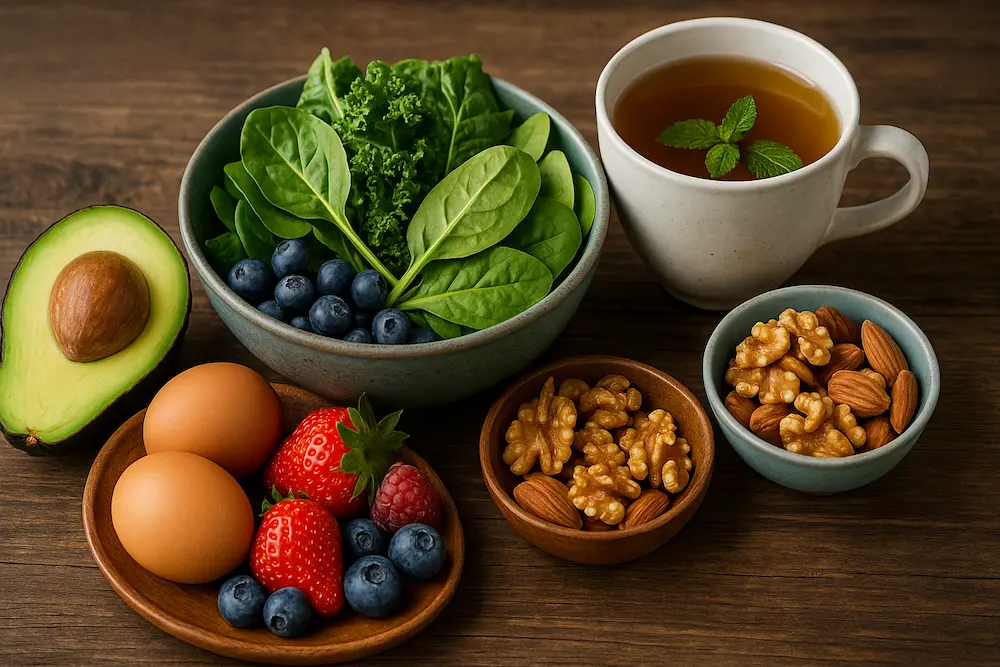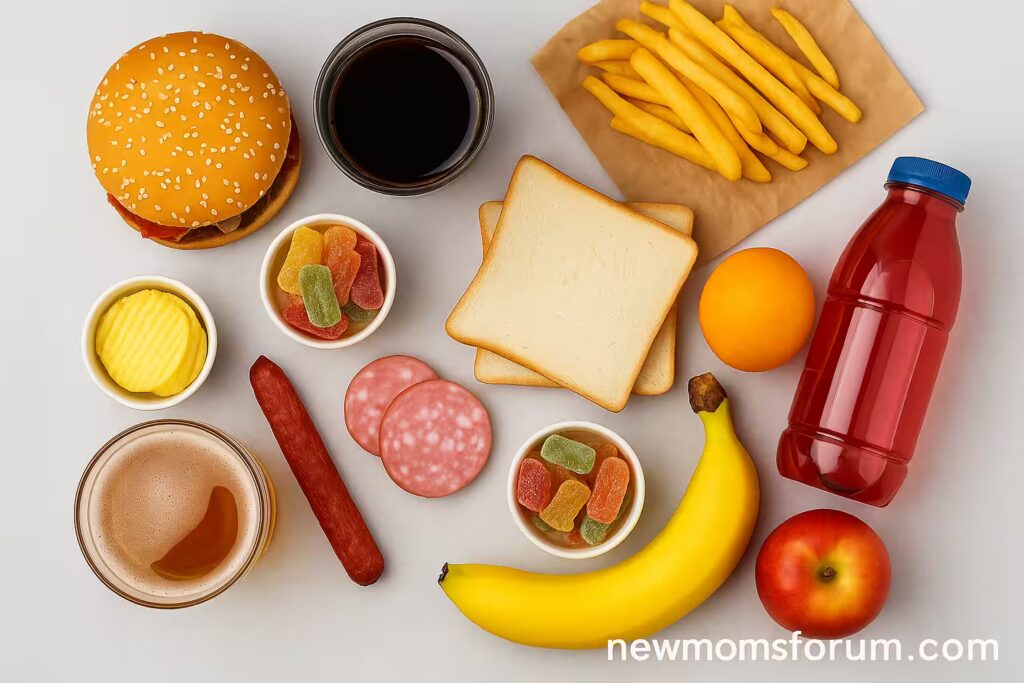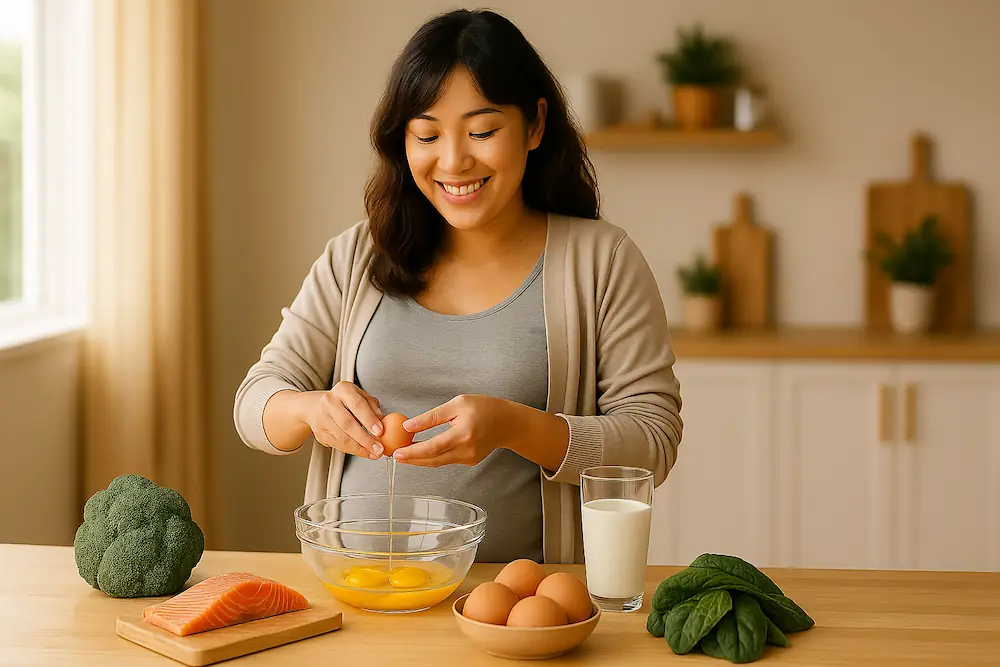Best Diet to Increase Chances of Getting Pregnant – A Scientifically Proven Plan for Boosting Fertility

Trying for a baby? First off, big hugs. 🤗 Whether you’re just starting or you’ve been peeing on ovulation sticks for months, it’s a lot. And while there’s no magic fertility smoothie (if only), what you eat genuinely matters.
Research is catching up to what many of us have suspected for years. Your diet can support hormone balance, egg health, and cycle regularity. Especially if you're dealing with something like PCOS, the food on your plate can be a serious ally.
Understanding Fertility and Diet
Fertility isn’t just about age or luck. What you eat can affect everything from your hormone levels to how often you ovulate. A nutrient-packed diet gives your body the tools it needs to support conception naturally.
Think folate, omega-3s, zinc, iron, and vitamin D. These aren’t just health buzzwords. They’re essentials that help your reproductive system function the way it’s meant to.
The Science Behind PCOS and Infertility
PolyCystic Ovary Syndrome (PCOS) affects about 1 in 10 women and is one of the most common causes of infertility. It’s a hormonal condition that can block ovulation and make periods frustratingly unpredictable. 😖
What is PCOS?
Here’s what it often looks like:
- Irregular or absent periods
- Higher-than-normal levels of male hormones (androgens)
- Enlarged ovaries with multiple small follicles
Many women with PCOS also struggle with insulin resistance. That means their bodies produce more insulin and testosterone, which messes with ovulation and makes conception trickier.
Keto Diet and Fertility – What the Studies Show
A 2023 study from the Ministry of Health Malaysia found that the ketogenic diet could boost fertility in women with PCOS. By slashing carbs and focusing on healthy fats and proteins, keto helps regulate insulin, balance hormones, and support weight loss. All big wins for ovulation.
Hormonal Changes on the Keto Diet
In the same study, women who followed keto for 45 days saw some big shifts:
- 11% average weight loss
- Lower testosterone levels
- More balanced follicle-stimulating hormone (FSH)
These changes are linked with better ovulation and a higher chance of conceiving naturally.
How the Keto Diet Helps Women with PCOS
Improved Insulin Sensitivity
Lower insulin levels mean lower testosterone and more regular ovulation.
Hormonal Balance
Keto helps balance estrogen and progesterone, which supports more predictable cycles.
Weight Management
Even a 5 to 10% weight loss can significantly increase your chances of getting pregnant if you're overweight and have PCOS.
What is the Keto Diet Exactly?
The keto diet is high in fat, moderate in protein, and very low in carbs. The goal is to put your body into a state called ketosis, where it burns fat for fuel instead of carbohydrates.
Macronutrient Breakdown:
- 70 to 75% fat
- 20% protein
- 5 to 10% carbs
How Ketosis Works
By cutting carbs to around 50g a day or less, your body starts producing ketones. This helps burn fat, stabilise blood sugar, and support hormonal balance.
Best Fertility-Boosting Foods to Eat
Here’s what to stack your plate with if you’re trying to conceive:
- Avocados – Healthy fats and folate
- Eggs – Protein and vitamin D
- Leafy greens – Iron and calcium
- Oily fish (like salmon) – Omega-3s for hormone health
- Nuts and seeds – Zinc, selenium, and healthy fats
- Berries – Antioxidants that help protect egg quality
- Full-fat dairy – Supports ovulatory function
Foods to Avoid When Trying to Conceive

These can mess with hormone balance and spike your blood sugar, which isn't great for ovulation:
- Sugary drinks and snacks
- White bread, pasta, and other refined carbs
- Processed meats
- Trans fats and deep-fried foods
- Alcohol
- Caffeinated fizzy drinks
- High-sugar fruits (especially if you’re doing keto)
Sample Daily Keto Meal Plan for Fertility
| Meal | What to Eat |
|---|---|
| Breakfast | Spinach and tomato omelette with avocado |
| Lunch | Grilled chicken salad with olive oil and feta |
| Snack | A handful of walnuts or almonds |
| Dinner | Herb-crusted salmon with steamed broccoli and asparagus |
| Dessert | Mixed berries with unsweetened whipped cream |
Low-carb, nutrient-dense, and easy to prep. Tick, tick, tick.
Other Fertility-Friendly Diets to Consider
If keto feels too full-on, here are two other options backed by research:
Mediterranean Diet
Full of whole grains, legumes, olive oil, fish, and loads of veg. It’s been shown to support ovulation and egg quality.
DASH Diet
Originally created for blood pressure, it’s rich in fruit, veg, lean proteins, and whole foods.
What to Drink to Become Fertile
Stay hydrated and skip anything that spikes your blood sugar. Try:
- Water – Always your best friend
- Spearmint tea – May help lower testosterone in PCOS
- Green tea – Full of antioxidants
- Electrolyte drinks – Great when adjusting to keto
Potential Risks and Side Effects of the Keto Diet
Keto isn’t perfect for everyone. You might run into:
- Nutrient gaps (especially fibre and B vitamins)
- Higher cholesterol if you rely on too much saturated fat
- “Keto flu” symptoms like headaches, fatigue, or irritability
Who Should Avoid the Keto Diet?
Skip it if you:
- Are pregnant or breastfeeding
- Have thyroid issues or gallbladder problems
- Have a history of disordered eating
Always check in with your doctor before making big changes.
Lifestyle Changes That Support Fertility
You can’t out-diet poor sleep and stress. These changes help too:
- Move your body – Gentle, regular exercise supports insulin and hormone balance
- Prioritise sleep – Hormones need rest to function properly
- Manage stress – High cortisol can interfere with ovulation
- Skip smoking and cut back alcohol – Both can delay conception
When to See a Fertility Specialist
Don’t wait too long to get help. Speak to a GP or fertility expert if:
- You’ve been trying for 12 months (or 6 if you're over 35)
- Your periods are irregular or absent
- You suspect PCOS or another hormonal imbalance
FAQs – Diet and Fertility
We know that when you're trying to conceive, your mind is buzzing with questions, whether they are big, small, or the kind you might not feel comfortable asking out loud, so we have included this FAQ section. It is designed to give you quick, reassuring answers to the most common fertility and diet questions, all in one place.
If you want to dig into the details and ask questions, feel free to drop a comment or post in our trying to conceive forum where I'll be happy to chat.
1. What is the best diet to increase fertility?
Keto and Mediterranean diets both support hormonal health and ovulation.
2. What foods should I eat to get pregnant fast?
Focus on leafy greens, oily fish, eggs, full-fat dairy, and antioxidant-rich berries.
3. Is the keto diet safe for fertility?
Yes, especially for women with PCOS. But speak with your doctor first.
4. What should I drink to boost fertility?
Stick with water, green tea, and spearmint tea. Avoid sugary or high-caffeine drinks.
5. Can weight loss help with fertility?
Yes, even 5 to 10% weight loss can improve ovulation in overweight women.
6. Are there any supplements to boost fertility?
Folic acid, vitamin D, omega-3s, and inositol are often helpful. Check with a healthcare provider before starting.
Final Thoughts On Choosing the Right Diet for Conception
No one-size-fits-all solution here. The best diet is the one that fits your body, your lifestyle, and your needs. Whether that’s keto, Mediterranean, or something in between, focus on whole foods, balanced hormones, and consistency.
👉 Already trying a specific diet to support fertility? Share what’s worked for you in the comments below. Your story could help another mum-to-be feel a little less alone. Want to chat more? Head on over to our Trying To Conceive Forum and let's dig through some options or discuss the detail more!






For the record, I really enjoyed researching this one 😊